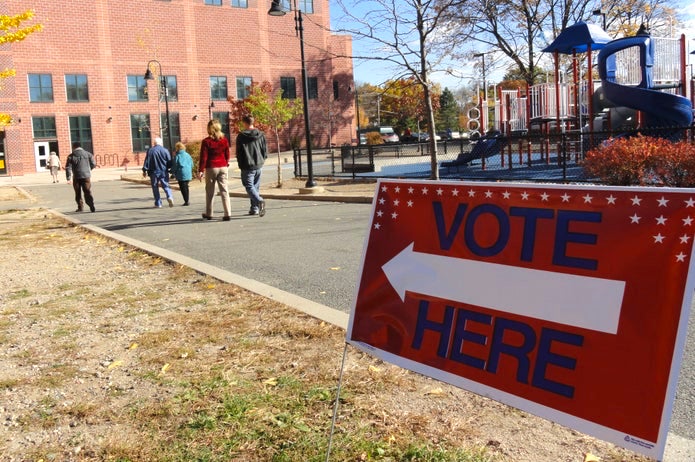Why the Jewish vote matters

In the run-up to the presidential election, BrandeisNOW asked faculty to provide analysis and insight into some of the most pressing issues facing the country. This is part of the series.
From at least as far back as the election of Abraham Lincoln, political pundits in America have speculated about the “Jewish vote” and its impact. The first known political broadside directed toward Jews, produced by the Jewish Union Republican Association, dates to 1864. Since, in Lincoln’s day, only about five out of every thousand Americans were Jews and today that number may not exceed 20 per thousand, one wonders why anybody cares about Jews’ political proclivities. The “Jewish vote” would seem far too small to matter.
The answer reveals much about how American politics actually works.
First, American presidential elections have often been dramatically close. Tilden vs. Hays (1876), Nixon vs. Kennedy (1960), Bush vs. Gore (2000) – these and other razor-tight presidential elections demonstrate why small groups, like the Jews, often hold considerable sway. When every vote counts, especially in the electoral college, hundreds of thousands of Jewish voters suddenly take on disproportionate significance.
Second, Jews happen to reside in states that any successful candidate wants to carry in a presidential election. Some 85% of Jews live in 20 critical metropolitan areas; the four states with the largest Jewish communities (California, New York, Florida and New Jersey) carry 128 electoral votes of 270 needed to win an election. In addition, numbers of Jews also dwell in historic swing states that often decide American elections, particularly Florida, Pennsylvania, and Ohio. This dramatically elevates the significance of the small Jewish vote.
Third, Jews are known to turn out and vote in high numbers on election day — more than almost any other ethnic and religious group. Some 85% of Jews vote in key presidential elections. Asian Americans and Latino Americans, by contrast, turn out at a rate of less than 50%. As a result, although they are but 2% of the population, Jews may approach 4% of the electorate.
Finally, Jews contribute to political parties in totally disproportionate amounts. An estimate published in 2016 proclaimed that “as much as 50% of all monies raised by Democratic presidential candidates are from Jewish funders; similarly, 25% of the Republican donor base is comprised today of major Jewish contributors.” So far this year, according to a recent Jewish Telegraph Agency report, 15 of the top 25 political donors in the U.S. are Jewish or of Jewish origin. The Democrats among them have donated over $165 million to their party’s candidates, the Republicans almost $88 million.
Jews, in short, punch above their weight in American politics. Small as the number of Jewish voters may be, savvy politicians woo them intensely, as they have done since the days of Abraham Lincoln.
Jonathan Sarna is a University Professor, director of the Schusterman Center for Israel Studies and the Joseph H. and Belle R. Braun Professor of American Jewish History
Categories: Humanities and Social Sciences





